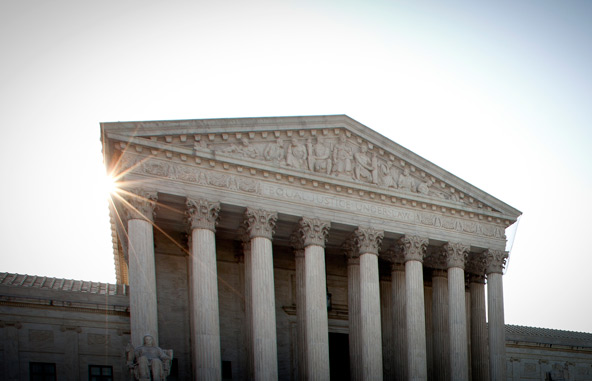
WASHINGTON (CNS) — The Supreme Court June 25 overturned the part of the Voting Rights Act used to determine that 15 states have had to comply with the law’s protections for minority voters.
The 5-4 decision said: “Section 4 of the Voting Rights Act is unconstitutional; its formula can no longer be used as a basis for subjecting jurisdictions to pre-clearance,” a process that has been used since the law was first enacted in 1965 to ensure polling places are readily accessible to minority voters. The provisions apply in nine entire states and individual jurisdictions in six other states with a history of discrimination. They have had to get advance federal approval of any changes to voting laws or procedures.
The ruling came in the second-to-last day of the court’s term. Rulings were expected June 26 in two cases involving same-sex marriage laws. The nine whole states affected by the voting ruling, Shelby County v. Holder, include: Alabama, Alaska, Arizona, Georgia, Louisiana, Mississippi, South Carolina, Texas and Virginia. The six states that must get permission for changes in certain jurisdictions include California, Florida, Michigan, New York, North Carolina and South Dakota.





